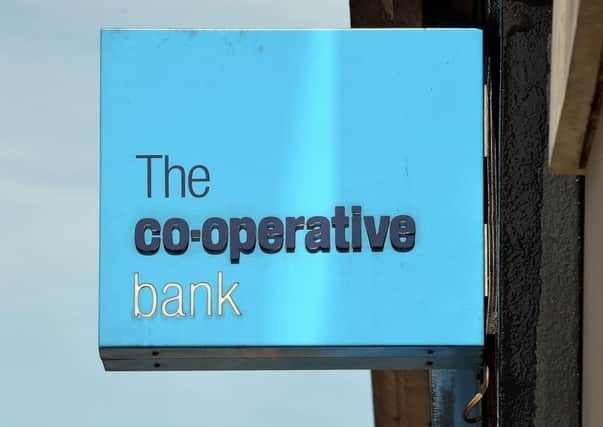Blow to mutual as US hedge funds take control of bank


The Co-op Group, which currently owns the Co-operative Bank outright, has bowed to the demands of a group of bondholders, including US hedge funds Aurelius Capital and Silver Point Capital, and agreed to a restructuring which will leave it with a 30 per cent stake in the bank.
The move risks alienating the bank’s 4.7m customers, many of whom were drawn to it because of its perceived ethical focus, and some using social networking site Twitter threatened to leave if the change of ownership went ahead.
Advertisement
Hide AdAdvertisement
Hide Ad“We’re planning to move away from Co-op Bank. Anyone know any ethical bank business current accounts?” said one.
Another suggested an action group or petition be set up to “let hedge funders know if they take control of Co-op Bank all signed up will go to other banks”.
Co-op Group chief executive Euan Sutherland said yesterday he had reached an agreement in principle to save the bank.
The Manchester-based group, which also runs supermarkets, a travel agency and funeral services, added it remained committed to preserving the bank’s ethical focus.
Advertisement
Hide AdAdvertisement
Hide AdOne source with knowledge of the discussions said the bank would continue to be called “Co-op” after bondholders take control and would retain its existing management.
The Co-op Bank hit trouble after racking up big losses on commercial property. Many of the bad loans were acquired through its takeover of the Britannia Building Society in 2009.
In June, the Co-op Group unveiled a plan to raise money from asset sales, bank loans and slicing the value of bonds in a bid to plug a £1.5bn capital shortfall at the bank. That would have left the group with a controlling stake.
But rebel bondholders last month submitted an alternative proposal that would give them majority ownership of the bank.
Advertisement
Hide AdAdvertisement
Hide AdBoth plans use a so-called “bail-in” model where bondholders will swap their debt for new bonds and equity in the bank, which will be listed on the London Stock Exchange.
The proposals meet new European directives which force bondholders and depositors, rather than taxpayers, to bear the cost of failed banks. Policymakers are keen to prevent a repeat of the 2008 financial crisis when billions of dollars of taxpayers’ money was used to rescue banks.
Mr Sutherland had previously insisted there was “no plan B”.